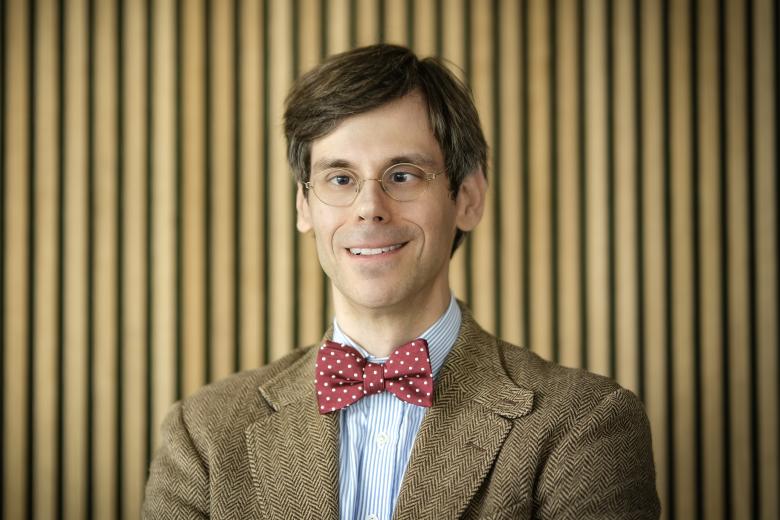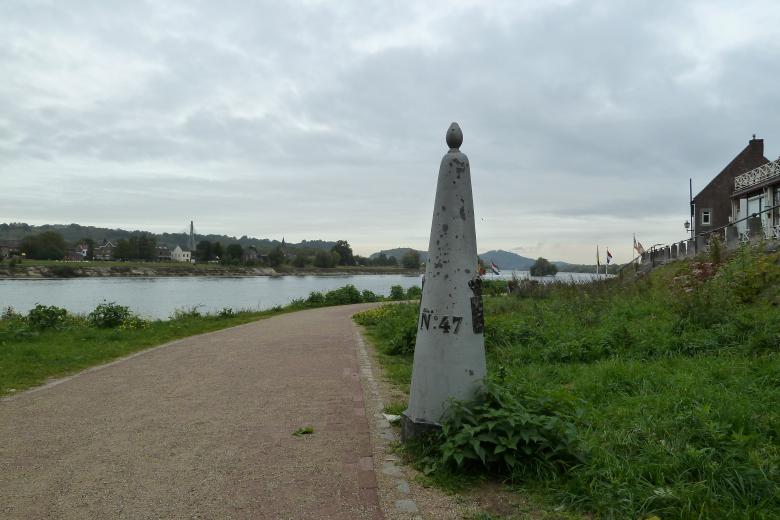Letters to the dark side
In a time where religious motives seem to form a base for terror, I was deeply touched by the virgil of peace organised by Maastricht University’s student chaplaincy. Several days after the attacks in Paris, Christians, Jews and Muslims gathered here to pray for peace. It formed a stark contrast with the images that I would see on German television later that night. The number of Germans that has joined the PEGIDA movement, a movement that blames the increased security threat on Islam in general and Syrian refugees in particular, is steadily growing.
In a time where religious motives seem to form a base for terror, I was deeply touched by the virgil of peace organised by Maastricht University’s student chaplaincy. Several days after the attacks in Paris, Christians, Jews and Muslims gathered here to pray for peace. It formed a stark contrast with the images that I would see on German television later that night. The number of Germans that has joined the PEGIDA movement, a movement that blames the increased security threat on Islam in general and Syrian refugees in particular, is steadily growing.
This appears to be a common theme in many countries. In the US, for example, several Republican politicians have argued that the Islamic religion itself provides a basis for terrorism; they specifically point to the threat posed by Syrian refugees. As a result, 25 governors of US states –that’s half of all of the states in the country- have refused to accept Syrian refugees.
An even more extreme view was put forward by Republican presidential candidate Donald Trump, who warned against taking up Syrian refugees and compared them to a gigantic Trojan horse that will result in an unprecedented influx of Islamic terrorists. Another Republican presidential candidate, Ben Carson, compared Syrian refugees to rabid dogs. These actions can easily contribute to a general atmosphere of hate, distrust and fear which could leave a disturbing imprint on Western societies. At the same time, they fail to acknowledge the fact many of the refugees are on the run from the same people that threaten us, whilst a large majority of the IS terrorists that were responsible for the attacks in Europe were raised here.
In any case, the question that remains is how Islamic IS really is. Inside IS, a book recently published by the German journalist Jürgen Todenhöfer, provided me with an important insight into this question. Todenhöfer, who has been writing about events in the Islamic world for a long time, is well known for arguing that the causes of the current crisis can be traced back to the military interventions in Afghanistan and Iraq. He was invited to travel through the Islamic State for ten days. The book provides a disconcerting insight into IS structures.
The most remarkable thing about the book is the summary at the end, written in the form of an open letter to the caliph of IS, Abu Bakr al Bagdahdi. Initially, this literary style alienated me. The tone-of-voice in the letter is extremely friendly. It makes you wonder whether the man behind so much evil should be addressed in such a civil manner. But in the end, this letter is extremely successful in exposing the true face of IS.
With this letter, written in the same extremely friendly tone as the famous letter that Mahatma Ghandi sent to Hitler in Christmas of 1939, Todenhöfer makes it clear that IS is anti-Islamic and is not representative for Islam. He gives examples of passages from the Koran that contradict IS policy, citing its ban of the killing of civilians, women, children and old people and the ban on destroying places of worship.
His analysis ends with a sentence that will stay with me for a long time: “Terrorism has as much to do with Islam, as rape has to do with love”. It is therefore essential that we combat terrorism based on what it is and refrain from labeling innocent people based on their faith. If we deviate from this path the terrorists will have won.
That’s why we at our university will continue to focus on mutual understanding, tolerance and the benefits of the open society in our educational system. It is also why we will continue helping our partners in the city and the region cope with the refugee challenge.
-
Seksuele veiligheid, de begroting en het definitieve MUMC+ voorstel
Beste leden van de UM gemeenschap,
Nu het jaar ten einde loopt, kan de Universiteitsraad terugkijken op een drukke periode. Onze nieuwe leden raken steeds beter vertrouwd met het werk van de Raad en leveren uitstekende bijdragen. In de afgelopen maanden hebben we ons beziggehouden met een breed scala...

-
Nieuw raadsjaar, kwaliteitsafspraken, DEI, alumni, internationalisering & mensenrechten
Beste leden van de UM gemeenschap,
Het nieuwe academische jaar is in volle gang, en dat geldt ook voor de vertegenwoordigende raden van de UM. De nieuw gekozen Universiteitsraad en Faculteitsraden, evenals de Dienstraden, zijn druk bezig met het bespreken van beleidsvoorstellen en het voeren van...

-
De grensregio, Europa en samenwerking: een analyse van de verkiezingsprogramma’s
Het is bijna tijd voor de verkiezingen. Voorafgaand worden verkiezingsprogramma’s aan menig meetlatten gelegd, die van het CPB, het SCP, vanuit het oogpunt van rechtsstatelijkheid, duurzaamheid, leefomgevingseffecten en ga zo verder. Vanuit ITEM legden wij de verkiezingsprogramma’s aan de meetlat...

